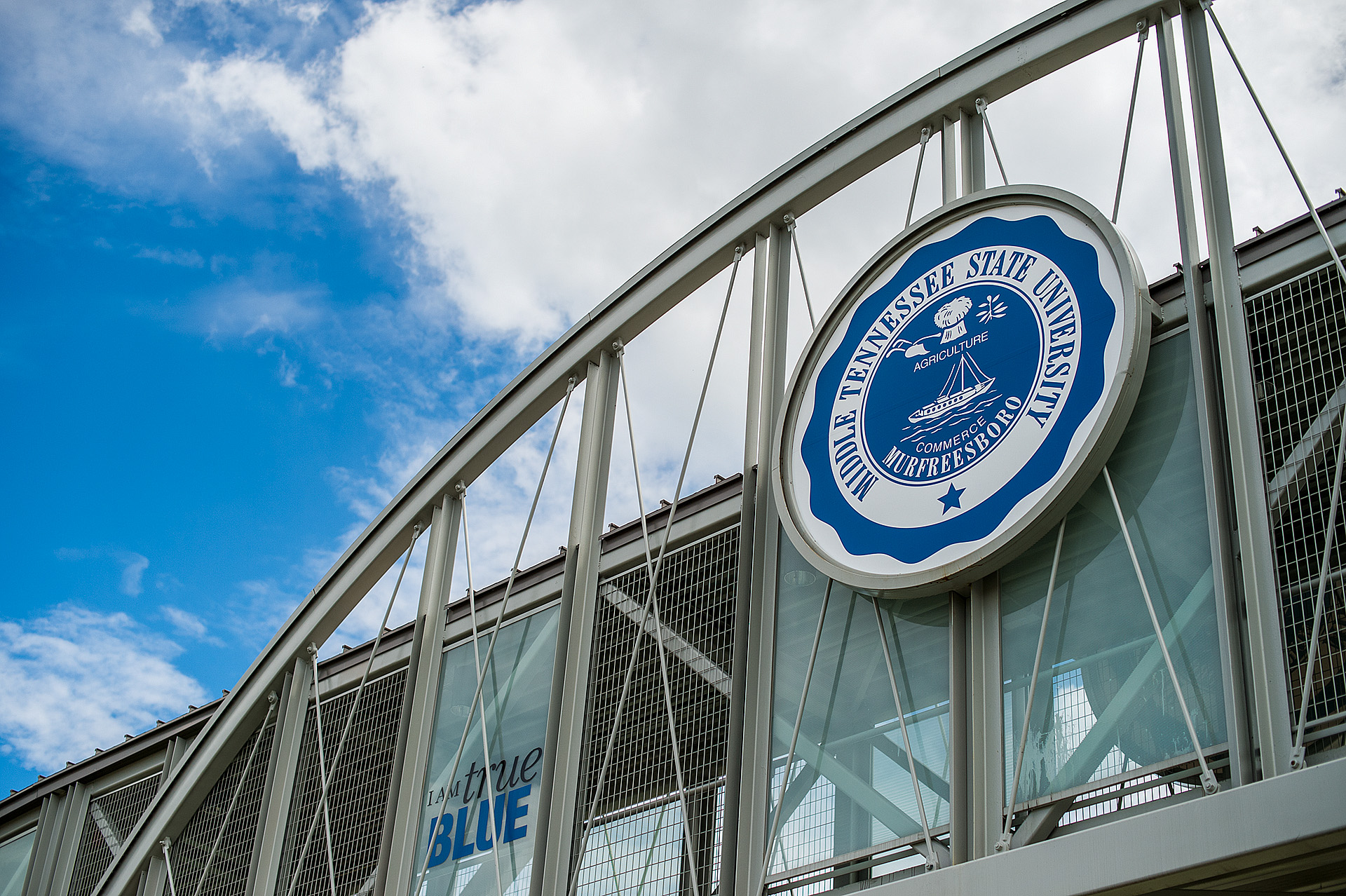Faculty and Strategic Initiatives
Research and Graduate Faculty Resources
FACULTY HANDBOOK
MTSU Mission, Vision and Organization
Academic Freedom and Responsibilities
Annual Faculty Assessment Calendar
Appointment, Renewal, Tenure, and Promotion Policies
Curriculum and Teaching Policies, Procedures and Guidelines
Faculty Development, Recognition and Information
Finance-Related and Travel Policies and Procedures
Hiring, Employment and Personnel Policies
Research and Graduate Faculty Resources
Research and Graduate Faculty Resources
MTSU is classified as a Carnegie Research 2: High Spending and Doctorate Production (R2) institution of higher education because it spends at least $5 million on research & development and produces at least 20 research doctorates. This section describes the university’s infrastructure that supports research activity and is divided into five parts.
Library Collections, Archives, and Research Centers: Introduces you to research collections and archives and centers of research and creative activity that support faculty members’ research and creative activity.
Policies and Forms: MTSU research policies and necessary forms.
Research Administration: Connects to the administrative offices overseeing practices, policies, and procedures that support research activity.
Research Resources: Resources that support the process of research or creative activities.
Documenting Research in Faculty Success: Explains how and where to document your research.
I. Library Collections, Archives and Research Centers
James E. Walker Library
Research Centers
II. Policies and Forms
Research Policies
Research Forms
- Conflict of Interest Disclosure Statement (referred to in Policy 12; See Cayuse Research Suite or https://www.mtsu.edu/irb/forms/)
- Copyright Disclosure Form (referred to in Policy 12 and Policy 140)
- Invention Disclosure Form (referred to in Policy 140)
- Human Subjects Review form (referred to in Policy 402; See https://www.mtsu.edu/irb/forms/)
- Application for the Use of Animals in Research or Teaching (referred to in Policy 403)
- Health Screening (referred to in Policy 403)
- Disclosure Form (referred to in Policy 404)
- Decision-Making and Communication Flow Chart (referred to in Policy 405)
- Procedures for Safeguarding and Accounting for Cash and Gift Cards in Research Studies (referred to in Policy 664)
III. Research Administration
Office of Research and Sponsored Programs (ORSP) – Reporting to the Vice Provost for Research, this office handles matters related to research and all sponsored activity in the University. For the provision of adequate services and support, the functions of this office are divided into three major sections: Education and Training (See Workshops & Training), Proposal Development (See Grant Application Process Guide), and Awards Management.
The Office of Research and Sponsored Programs also assists faculty members in identifying funding opportunities, provides a Grant Writing Enhancement Program professional development experience for faculty, and coordinates compliance initiatives, including the Institutional Animal Care and Use Committee (IACUC) and Institutional Review Board (IRB) committees.
The Cayuse Research Suite is the research administration system that ORSP uses for processing and managing sponsored projects. The Cayuse Research Suite also includes modules for IRB, IACUC, and Conflict of Interest.
The Office of Institutional Effectiveness, Planning and Research (IEPR) – Institutional Research provides data and analysis through a variety of sources including the MTSU Fact Book, Common Data Set, and the Power BI dashboards. IR participates in a number of external surveys and data collections. Ad hoc requests can be made with the data request form.
Undergraduate Research Center – The Undergraduate Research Center provides students with opportunities to engage in mentored research during which faculty mentors lead, guide, and engage students in intellectual pursuits and recognize that commitment to an enriched faculty experience lies at the core of an enriched student experience.
IV. Research Resources
- Non-Instructional Assignment Grants: The NIA grant relieves faculty members from all faculty duties for one semester at full pay (12 hours reassigned time) or for one academic year at half pay (6 hours reassigned time per semester) to pursue research, publication, or creative activity opportunities. As of 2025, the university provides 16 NIA grants per year to tenured/ tenured track faculty.
- Guidelines for Appointment of Graduate Assistantships The Steps to Hire a Graduate Assistant flowchart is particularly helpful.
- LinkedIn Learning (formerly Lynda.com) : Video-based instruction and online training library. Tutorials are available for writing, publishing, graphic design, animation, and audio/video. Free to MTSU students, faculty, and staff.
- Library Technology Services: Adobe Suite, ArcGIS Pro, Autodesk 3ds Max, Keynote, iMovie, MuseScore, OBS Studio, RStudio, and more.
- O’Reilly Online Learning: Technology content along with videos and expert-curated learning paths and self-assessment. Includes Safari e-books.
- Software: Camtasia, MathWorks Matlab, NVivo, Qualtrics, SAS, SPSS, Wolfram Mathematica, and other software programs, go to the ITD Service Portal. Select Request Something. Select Software. Select Software Order. In the order form, find Software Item I. Use the drop-down menu to scroll through the options.
- Writing Retreat/Groups: Sponsored by the Center for Teaching and Mentoring. These groups foster a culture of writing. Two-day retreats occur at the beginning of each semester and writing groups meet over the course of the semester.
V. Documenting Research in Faculty Success
Faculty Success is the system that MTSU uses to collect information for faculty annual reviews, annual evaluations, and reports.
Contact Us
Faculty and Strategic Initiatives
111 Cope Administration Building
(615) 898-5941
Angie.Price@mtsu.edu
